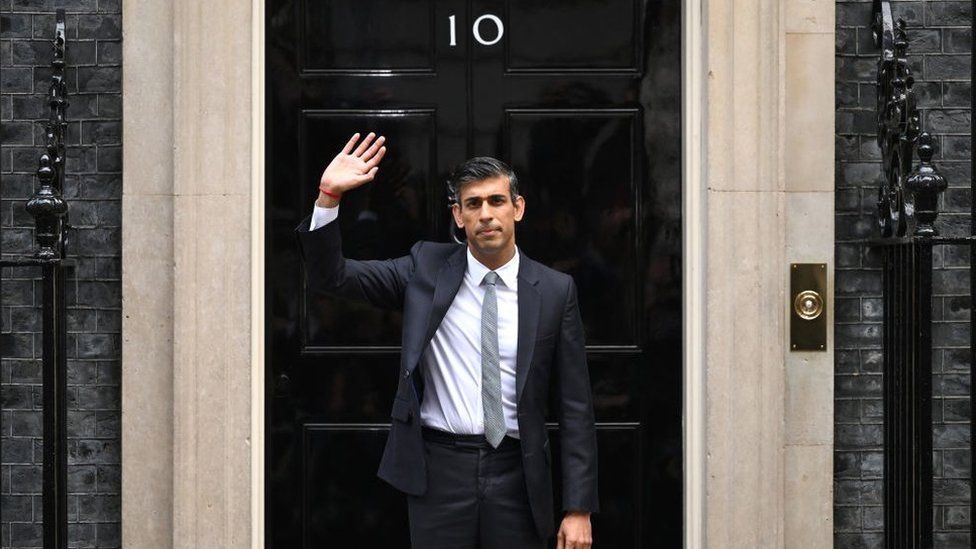By Holly Farrell
Britain, oh Britain, where did it all go wrong? Gone are the days of the UK invoking an image of stability and prestige. Thirteen years of conservative rule, scandal after scandal, and the Brexit conundrum have left the UK in the unfortunate position of being able to boast of having had five prime ministers in just six years. Three of which were in the last six months of 2022 alone.
Meanwhile, the so-called ‘nasty party’ has implemented an increasingly nasty public policy, eroding the welfare state and promoting anti-immigrant discourse. In recent years, immigration has become a very polarised issue, as seen by its role in the Brexit referendum. Great attention has been placed on the arrival of refugees and migrants in small boats across the English Channel. Rather than reforming asylum policy, the British government has adopted an increasingly inhumane, closed border approach.
The arrival of the current prime minister, Rishi Sunak, on the 25th of October brought a wave of new hope, however. For many, he is a breath of fresh air, a pair of safe hands in a time of heightened uncertainty.
A lot of attention has been paid to Sunak’s apparently humble origins. Sunak himself began his election campaign video with a reference to the immigration of his grandparents and parents to the UK in the 1960s. He is the first prime minister of Indian-origin and the first person of colour to hold the role. Regardless of your views on Sunak, this is certainly a momentous milestone and a symbolic declaration of the diversity of the United Kingdom.
Whilst Sunak’s own background, like his £33,990 per year private school education (the current British median income is approximately £33,000), isn’t exactly the same rags to riches story, such a proud reference to his immigrant background is a positive change for post-Brexit Britain. In a society where blaming the foreigner has become increasingly socially acceptable, a prime minister’s endorsement of migration should give a ray of hope to the end of the inhumane migration policy which has characterised the conservative party.
Such policy includes the controversial Rwanda scheme, conceived under Boris Johnson but supported by Rishi Sunak, which involves sending asylum-seekers to Rwanda to deter others from travelling across the English Channel to the UK. This violates the Geneva Convention which states that asylum-seekers should not be sanctioned for illegal entry, so it is currently being challenged in court.
In fact, Sunak has gone further. In early March, he introduced the Illegal Immigration Bill, which outlines plans to prevent those arriving on small boats from claiming asylum. Arrivals would be held in detention centres for 28 days before being removed from the UK and banned from ever returning, regardless of the validity of their asylum claims. Sunak has also struck a bilateral treaty with Macron, managing to improve the Franco-British relations which soured under Johnson and Truss. Under this deal, the UK will provide France with €541 million to deploy hundreds more French law enforcement officers along the coast, as well as funding a detention centre in France as a further deterrent.
Home Secretary Suella Braverman’s remarks that the bill has an over 50% chance of being incompatible with convention rights has further fuelled demands from the British far right to leave the European Convention on Human Rights. Such a move would violate the Good Friday Agreement and would make the UK the third European country not signed up to the ECHR, alongside the autocratic regimes of Belarus and Russia.
In 2022, 45,755 people crossed the English Channel in small boats and the majority claimed asylum. Half of those who crossed came from Afghanistan, Eritrea, Iran, Sudan, or Syria and at least 80% of asylum claims from these countries are granted. This figure stands at 98% for Afghanistan, Eritrea, and Syria. Meanwhile, of the 12,286 instances in which the Home Office has attempted to class an asylum claim as inadmissible, the success rate stands at just 0.7%.
Therefore, it is clear that their requests for asylum are legitimate. There is no legal basis for the British government’s attempts to prevent them from entering the UK. Instead, this is a clear question of morals, or lack thereof.
Besides the illegality and blatant inhumanity, there is something unsettling about this policy: it probably won’t work.
Experts have repeatedly criticised the governments’ schemes as being unable to prevent people from making the hazardous journey by boat. Instead, the sole reason why they choose to do so is because there is no alternative. Currently, there is virtually no legal route into the UK for non-Ukrainian asylum-seekers. Over the past year, over 210,000 visas were issued to Ukrainians to enter the UK. Meanwhile, there has been no record of Ukrainians crossing the Channel.
The UK needs a serious asylum reform to enable individuals to claim the asylum status to which they possess every legal and moral right without having to take dangerous and ‘illegal’ means.
It would have been easy to hope that the new prime minister, proudly telling the country of his own background of immigration, would have been the one to look at those desperately trying to enter the UK with a humane eye. Yet, Sunak has proven that under him British asylum law will stick to the increasingly cruel status-quo.
Whilst the situation is unlikely to improve, it would be wrong to imply that the British people have been completely passive in response. Sunak has faced fierce opposition within the political sphere and a group of twelve trade unions published a letter, accusing the government of complicity in violent attacks against refugee housing.
Meanwhile, in the days that followed the policy announcement, the British media was largely preoccupied with the case of Gary Lineker: a former England footballer and current pundit who labelled the government’s policy as ‘cruel’ and stated that their language was ‘not dissimilar to that used by Germany in the 30s.’ He was then suspended by the BBC, on grounds of their impartiality rules. Lineker refused to apologise for the offending tweet and the BBC was forced to abandon most of the following weekend’s football coverage as other pundits refused to appear on air out of solidarity with Lineker.
Rishi Sunak is indeed a Brexiteer leading a party that has been veering increasingly further right in recent years. He may be a fresh face with more enthusiasm than the typical ‘stale, pale, male’ who is envisioned as leader of the conservative party, but appearances can be deceiving. Whilst there is a current propensity to criticise immigration in the UK, most of the British population want to reduce the Channel crossings in a humane way. As economic and moral pressures tighten, Sunak runs the risk of being recognised as being as out of touch as all his predecessors and it’s not too long until the next election…
Other posts that may interest you:
Discover more from The Sundial Press
Subscribe to get the latest posts sent to your email.





